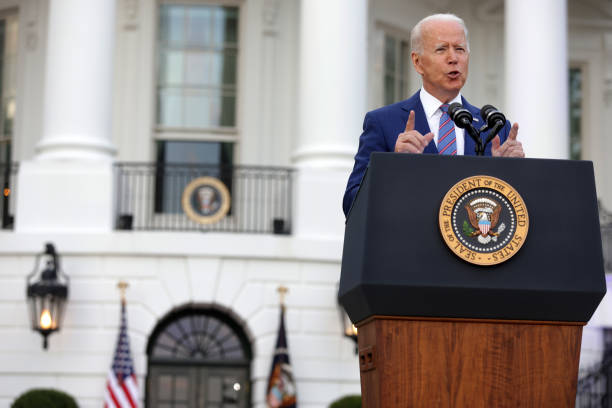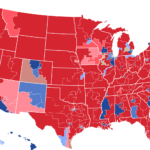On October 7, 2001, the United States and its allies invaded Afghanistan in order to flush out the Taliban. This would ensure that terrorist organizations such as Al-Qaeda did not have a base to operate from. Nearly twenty years later, America is abandoning the county. U.S President Joe Biden, following the Afghan withdrawal plans developed by former President Donald Trump’s administration, announced that all U.S. troops would be withdrawn from the country by August 31, 2021. This would make certain that American troops are not still fighting in Afghanistan when the twenty-year Anniversary of 9/11 passes.
The Taliban, the group of Islamic Extremist insurgents currently taking over the country, officially captured the Afghan capital of Kabul on August 15. The Afghan President, Vice President, and Chairman of the House of People all fled the country the same day. Shortly after, the flag of the Afghan Republic atop the Arg was lowered and replaced by the Taliban flag. Then, Taliban forces declared the restoration of the Islamic Emirates of Afghanistan, effectively ending the Republic of Afghanistan. Now, with the last troops withdrawing from the country, was Biden right to leave Afghanistan and end America’s longest war?
How We Got To This Point
America has been directly involved in Afghanistan since the immediate aftermath of the terrorist attacks of 9/11. Al-Qaeda, the terrorist organization led by Osama Bin Laden, operated with impunity in Afghanistan before America’s involvement in the country. Knowing that the only way to eradicate Al-Qaeda and other terrorists from the country was to invade and end the Taliban’s rule of the country, the U.S. did just that. A month after 9/11, the United States and coalition forces invaded the country. They initially succeeded in overtaking the Taliban, and as a result, flushed out Al-Qaeda.
However, terrorists operate on an ideology, so this invasion alone was never going to truly eradicate Al-Qaeda or other terrorists. To combat this, the U.S. and the United Nations established a permanent peace-keeping force to keep terrorists on the run. All of this ran concurrent to the U.S.’s manhunt for Bin Laden. He would evade authorities for nearly a decade before being located and killed by U.S. Navy Seals on May 2, 2011. This hunt for the mastermind of the 9/11 attacks meant that the U.S. could never really pull out of Afghanistan.
The U.S., after the death of Bin Laden, continued to have a strong military presence in Afghanistan. The peacekeeping force was more like an army, numbering in the tens of thousands during the majority of the war. The United States also continued to conduct targeted raids on suspected terrorists and peacekeeping missions. All of this necessitated that America could never really leave the country in full. This is despite the fact that all of Presidents Obama, Trump, and Biden campaigned on ending America’s involvement in Afghanistan.
During the Trump Administration specifically, there were several attempts to leave Afghanistan as well as peace talks with Taliban leaders. Trump’s Administration ultimately set a date of May 1, 2021, to leave the country. When Biden became President, he vowed to follow through with Trump’s plan. The deadline, however, was moved back to September 11, and subsequently, the date of August 31 was agreed upon.
Biden’s Rationale and the Response
President Biden has expressed his intention to withdraw all U.S. troops from Afghanistan on multiple occasions. The reason for this, he says, is that America is facing an unwinnable war in the country. Biden also says that he will not pass the debacle on to his successor or allow the war to continue. Biden stated that although the situation was difficult to rectify, the best thing the U.S. can do at this point is to follow through with his plan to withdraw. He said, “After 20 years, I’ve learned the hard way there was never a good time to withdraw U.S. forces”. Biden would know, as he and former President Barack Obama lobbied for the withdrawal of U.S. troops from Afghanistan previously.
Biden and Obama ended up being shot down at multiple junctures by concerned military leaders and advisors. They said that a U.S. withdrawal may result in a complicated situation, the likes of which we are now seeing. However, Biden has stated publically that the entire War in Afghanistan is a lost cause for the United States. He said, “American troops cannot and should not be fighting the war, and dying in a war that Afghan forces are not willing to fight for themselves”. Biden’s resolve seems to essentially let the country fall to the Taliban, no matter how “gut-wrenching” that may be.
Despite the criticism from both sides of the political aisle with Biden’s handling of the withdrawal, Biden has stayed defiant. He said, “I stand squarely behind my decision” with regards to Afghanistan. Republicans, many of whom supported former President Trump’s attempts to leave Afghanistan while he was President, have largely criticized Biden. Senate Minority Leader Mitch McConnell, after seeing the scenes of withdrawal from Kabul, said America’s actions are “the embarrassment of a superpower laid low”.
Representative Liz Cheney, whose father was involved with the initial invasion of Afghanistan, criticized Biden and Trump. She expressed that this is by no means ending a war, but rather creating a future one. She opined that Taliban control of Afghanistan would result in rampant human rights violations that would constitute America’s reentry into the county. Other critics have expressed concerns that the Taliban reallowing terrorist organizations into Afghanistan could enable future attacks on America. This is a compound problem due to the current crisis at the U.S.-Mexico Border.
Why Biden is Right
It is no accident that an America President is attempting to leave Afghanistan and thus end America’s longest war. All three of President Biden’s predecessors since 2001 have conducted similar actions. The difference here is Biden seems to be keeping his promise that the United States will leave Afghanistan for good. The argument for why he is justified in doing this is simple. Biden is pulling out of a war that America simply can’t win. Vietnam proved to be of a similar ilk in that despite hundreds of thousands of U.S. troops fighting for seven years, the result was not a victories campaign. So, the U.S., as shameful as it was, pulled out of Vietnam and let Saigon and the south fall.
America is better off today because of this rather than if we stayed and continued to fight an unwinnable war. It takes courage to essentially humiliate your country and declare a war a failure, but Biden did it anyway. It should also come as no surprise that his military and political confidants advised him otherwise. These individuals and their friends in the Defense Industry greatly benefit from endless wars in the Middle East. If the military keeps fighting in Afghanistan, then they will continue to need supplies, and thus these companies will continue to receive contracts to fill those orders. In effect, Biden is defying the Military-Industrial Complex, a line that almost no other President has been willing to cross.
It is important to note that America’s involvement in Afghanistan, just as in Vietnam, constitutes blatant foreign interference. Yes, it is true that rebels operating within Afghanistan orchestrated a terrorist attack against the United States twenty years ago, but how long do you continue to fight that battle? The main perpetrators of that attack have long been killed or imprisoned, so the only justification to stay in Afghanistan or any other Middle Eastern country long-term is to police its inhabitants. America is not or at least should not be in the business of policing other countries.
The Justification
The U.S. is not the world’s resident mercenary army that every country should expect protection from. Instead, it is a sovereign nation that looks after smaller less powerful countries and assists them when appropriate. The when appropriate part is important, but perhaps more important is how should the U.S. address other countries’ affairs. Would it be unreasonable to assist foreign nations with financial and other aid instead of troops? Not only should it not be, but the U.S. should institute a policy of nonintervention when its interests are not directly at stake. This would ensure that regime change wars are a thing of the past.
One other reason President Biden is absolutely right in his decision to pull out of Afghanistan is that the U.S. does not actually address all human rights violations worldwide, nor should it. An example of this is the rogue nation of North Korea. The United States knows for a fact that hundreds of thousands if not millions of people have died in North Korea due to starvation or other conditions directly caused by their Communist overseers. But does the U.S. send troops to North Korea to address human rights violations there? Of course not, but the same argument is being used to justify America’s never-ending involvement in Afghanistan. We address the North Korean threat by putting severe economic sanctions on the country. They prevent it from ever generating enough wealth to legitimately threaten the U.S. or any of its allies.
Why couldn’t the U.S. implement a similar strategy for Afghanistan? It would solve the immediate threat of violence against Americans both foreign and domestically. It would also ensure that a country controlled by the Taliban could never generate the kind of wealth necessary to develop weapons of mass destruction. The one problem with this logic is the current crisis at America’s Southern Border. If the border continues to be wide open, then terrorists originating in Afghanistan may start to enter the U.S. illegally. Then, they could freely operate in America and plan to attack the country from within. So, Biden’s next move should be to close the border, or at least start deporting those who enter illegally. This would greatly reduce the threat of terrorism that may result from the Taliban’s takeover of Afghanistan.
The Big Picture
President Biden must answer one important question after the United States completely withdraws from Afghanistan. What is the plan to protect America from whatever terrorists occupy Afghanistan and what will America’s future policy be in the event of a foreign conflict? From what the President has said, it seems that Biden will implore the intelligence community to continue to target terrorists worldwide, regardless of whether they originate in Afghanistan. Additionally, Biden’s actions signal that America will try to stay out of other countries’ affairs as much as possible.
This would entail U.S. troop withdrawals from other countries, but I suspect that will be put on hold for now. The message that Biden is trying to convey is that the U.S. will no longer cede power and influence to companies that hope the U.S. never leaves countries like Afghanistan. Also, the U.S. will again start listening to American citizens who overwhelming want to end the endless wars. This message is commendable, but only time will tell if the U.S. withdrawal from Afghanistan was the right move.
Main Photo from Getty.













